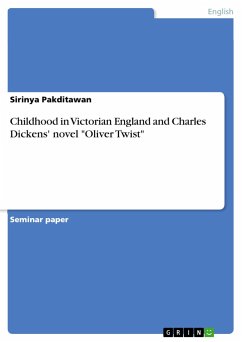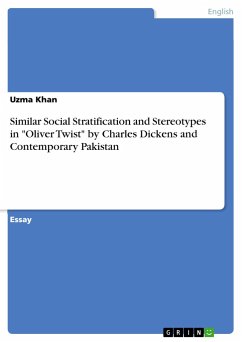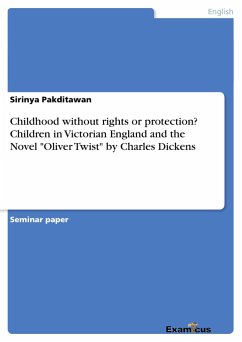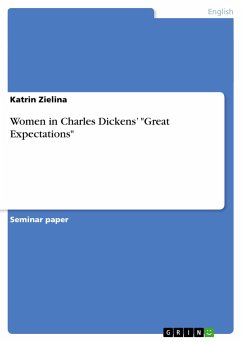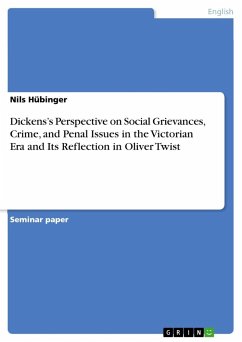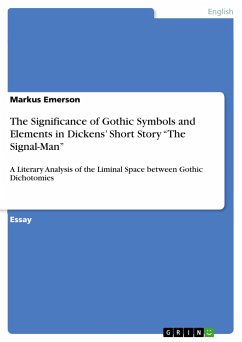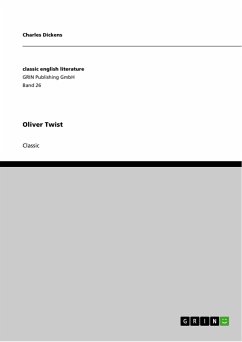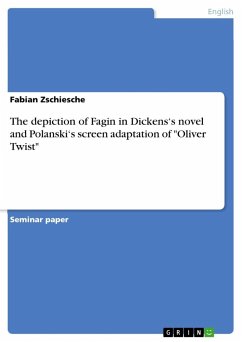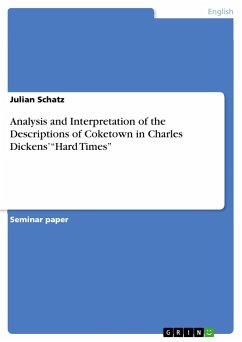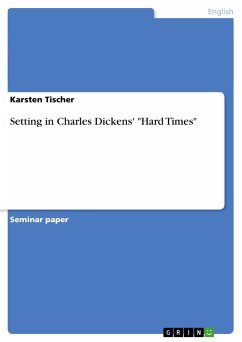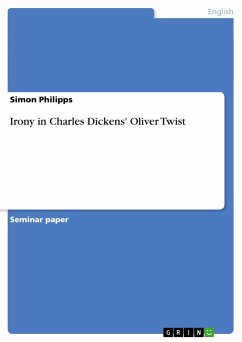
Irony in Charles Dickens' Oliver Twist

PAYBACK Punkte
0 °P sammeln!
Seminar paper from the year 2005 in the subject English Language and Literature Studies - Literature, grade: 1,3, RWTH Aachen University (Institut für Anglistik, Lehrstuhl 1), course: Charles Dickens, language: English, abstract: When first reading 'Oliver Twist' it is obvious to most attentive readers that Dickens uses irony. What also becomes clear is that he uses irony in a variety of forms. To grasp this variety it is hardly ever sufficient to use the classical definition of irony exclusively according to which "an ironical utterance is traditionally analyzed as literally saying one thing...
Seminar paper from the year 2005 in the subject English Language and Literature Studies - Literature, grade: 1,3, RWTH Aachen University (Institut für Anglistik, Lehrstuhl 1), course: Charles Dickens, language: English, abstract: When first reading 'Oliver Twist' it is obvious to most attentive readers that Dickens uses irony. What also becomes clear is that he uses irony in a variety of forms. To grasp this variety it is hardly ever sufficient to use the classical definition of irony exclusively according to which "an ironical utterance is traditionally analyzed as literally saying one thing and figuratively meaning the opposite." In order to give the reader a more detailed idea of what irony is, the main part of this work will be divided into two sub-divisions. The first sub-division tries to give an answer to the question what irony is in general and how it can be sub-classified into more specific types of irony. The second sub-division is supposed to show the reader which ofthe formerly described types of irony can or cannot be applied to Oliver Twist and why they can be or cannot be applied. This should give the reader a better idea of why an utterance or a situation is perceived as ironic. The aim is not only to make the reader realise irony but also to make him able to say as to why this situation or that utterance can be seen as ironic. The conclusion will then show to what extent the definitions given in the first sub-division of the main part are useful to analyze irony in the novel. It is also supposed to answer the question why Dickens used irony and what he wanted to achieve using it. The definition of irony and the sub-categorization into the different types of irony, which is the basis of the first sub-division of the main part, was mainly overtaken from The Bedford Glossary of Critical and Literary Terms . The main advantage of this definition is that it draws clear cut boundaries between the different types of irony and gives clear advice how to differentiate between them. Except for one chapter in the book by Patricia Plummer , there was no literature exclusively dealing with the different forms of irony in Oliver Twist specifically. The problem with Mrs. Plummer's work is that she exclusively describes the ironic parts of Oliver Twist by means of rhetorical figures. Of course, this is a tenable approach but it did not really serve the purpose of a better understanding of irony in Oliver Twist, which is the aim of this work.




